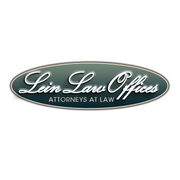How Are Priority & Non-Priority Debts Handled in Bankruptcy?

Whether you file for Chapter 7 or 13 bankruptcy, your debts will be dealt with differently. This means separating your unsecured and secured debts, but even your unsecured ones will be further separated into priority and non-priority categories. This overview explains these categories in more detail and demonstrates why you shouldn’t expect all of your debts to be discharged.
What Are Priority & Non-Priority Debts?
While non-priority debts can be easily discharged in bankruptcy, the same can’t be said of priority debts. That’s because the government holds the view that certain debts must be paid. These priority debts are addressed first, and there must be a way to get them paid before other debts can be discharged.
Examples of priority debts:
- Wages and other payments owed to employees
- Contributions to employee retirement plans and other benefits
- Child and spousal support payments
- Certain kinds of taxes, such as last year’s income
- Fees and penalties owed to the government
- Wrongful death and personal injury settlements that resulted from drunk driving accidents
Examples of non-priority debts:
- Credit card debt
- Medical bills
- Unpaid rent
- Utility bills
- Older unpaid taxes
- Personal loans
How Do They Affect Each Type of Bankruptcy?
Chapter 7
 Since priority debts can’t be discharged, they must be paid as a part of the chapter 7 filing process. In some cases, you may not be able to pay these debts in advance. While the filing will still proceed, the judge will advise you that you still owe those debts and must develop a payment plan for meeting these obligations.
Since priority debts can’t be discharged, they must be paid as a part of the chapter 7 filing process. In some cases, you may not be able to pay these debts in advance. While the filing will still proceed, the judge will advise you that you still owe those debts and must develop a payment plan for meeting these obligations.
Chapter 13
When you file a chapter 13, you’re required to develop a payment plan for repaying secured and non-secured debts. The payment plan must include paying priority debts first or the judge won’t accept the proposal. If you can’t create a payment plan that provides a way for meeting these obligations, your bankruptcy petition may not be accepted by the court.
As you file bankruptcy, it’s necessary to examine each debt to determine how the debts will be repaid in the event they aren’t discharged. Lein Law Offices has locations in Winter and Hayward, WI, to ensure people seeking debt relief have access to their experience and knowledge of Chapter 7 and 13 laws. They’ve been practicing since 1983, so you can trust that they’ll provide you with the debt relief services you need. To schedule an initial consultation, visit them online or call (715) 634-4273.
About the Business
Have a question? Ask the experts!
Send your question

